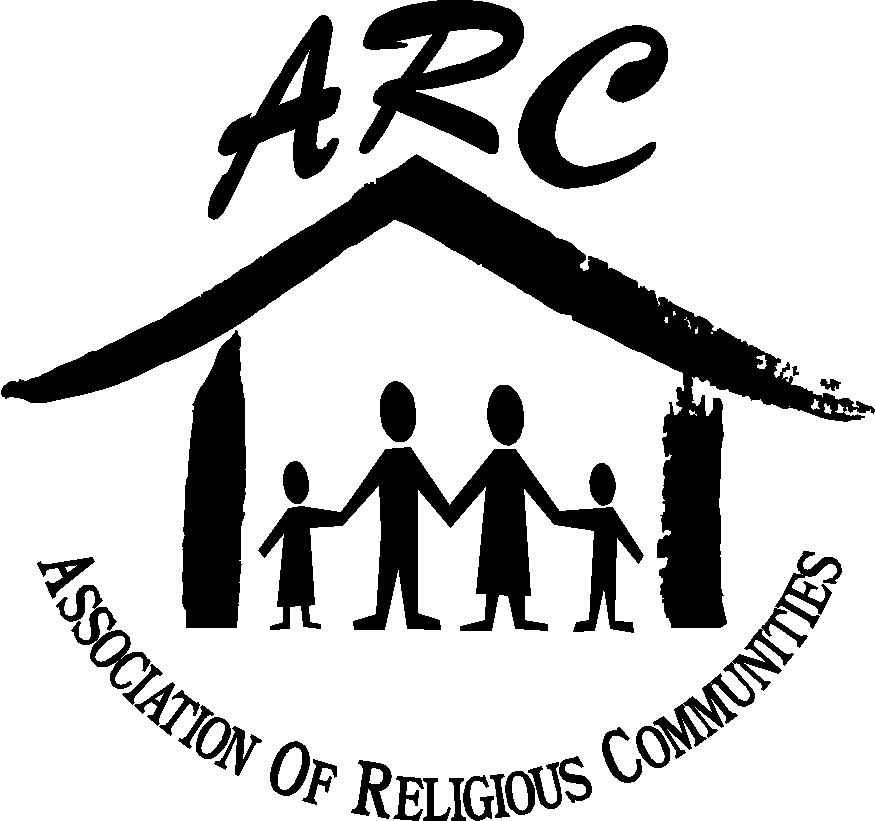
ARC Forum on Faith - Archive 2018







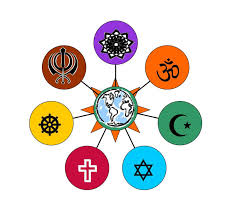
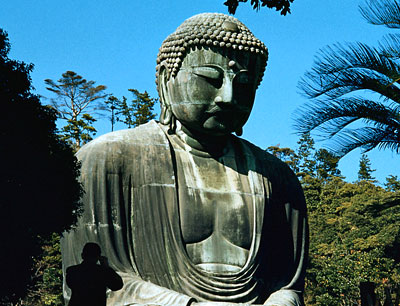
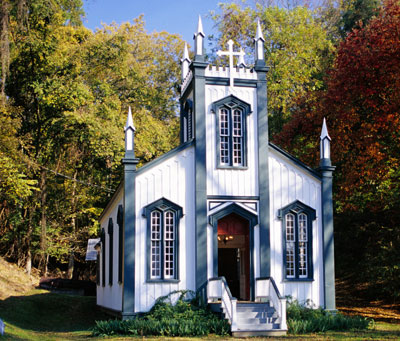


![]()

ARC Forum on Faith - Archive 2018












![]()
SITE INDEX
Top of Page
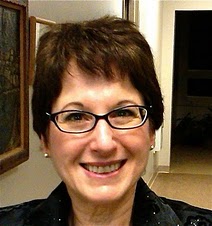
Canter Penny Kessler
FORUM ON FAITH
Apply mussar values and think before you speak.
by Canter Penny Kessler
Published: December 15, 2018
Danbury News Times
I'll admit that in the land of social media, or in the real world, when strong opinions start to fly, it's hard to stay neutral. My first impulse is to join the fray and add my two cents' worth, often with sarcastic commentary masquerading as brilliant wit.
Those momentary satisfactions have terrific ego payoffs as I bask in my dazzling powers of persuasion. I say to myself, "Look at me: I shut down a conversation. I won an argument. I am powerful." I'm sure I'm not the only one who experiences this. The problem is that the enormous ego payoff seems sends my soul a direct hit. I feel my soul shrivel in the aftermath, and that momentary success becomes an impossible burden. I feel like those poor shriveled souls created by Ursula, the Sea Witch, in Disney's animated film "The Little Mermaid."
When I realize that my soul and mind need a serious attitude adjustment, I dive into the study the Jewish tradition of mussar, the vast compendium of teachings on Jewish life values.
Mussar, developed in 19th Century Lithuania, offers a learned and practiced discipline of traditional Jewish wisdom, justice, and equity. The goal of learning and applying mussar in real life is finding a sense of balance, humility, and soulful peace. Learning and applying the value of humility - anavah in Hebrew - lets my soul realize its appropriate size.
Mussar teachers talk about humility in terms of a spiritual bench. Not only is there room on the bench for me, there's room on the bench for everyone who wants to sit. Not only is there enough air and space in the world for me, there's enough for everyone. Each of us takes up our spiritual portion of the bench, and the air, leaving enough for everyone else.
In other words, I don't have to hide or shrink myself by believing that I'm not good enough to take up any space or air. In fact, mussar teaches that what most people think of in terms of humility is actually pride in reverse: "Look at how small I am; I don't deserve anything; look at how little I think of myself."
I believe real humility is essential in the cyber worlds of politics and religion. Without it, I may be tempted to believe my faith or political opinion is not only the best, but the only one that can be tolerated and accepted. Practicing humility on social media gives me the chance to hear other perspectives.
When one's first impulse is to shut down divergent opinion, even the act of giving it space feels like a huge deal. That's not to say that all opinions are valid; I believe some opinions are inherently evil and need to be called out and criticized.
That brings me to a second mussar value, equanimity or tranquility - menuchat ha-nefesh - which is all about balance, level-headedness, and calmness of spirit.
Equanimity gives us the space to breathe when someone insists that their belief is the only truth or the other opinion is evil.
And since all ideologies, behaviors, and opinions are not equal, it's a blessing to be able to respond with perspective. When life appears to be in chaos, equanimity's by-word is "This, too, shall pass," or "This, too, is passing."
In social media chaos, issues flare and die out; today's outrage is tomorrow's ashes. The shelf lives of scandals and outrages are now hours, if not minutes. I believe that if everything is a scandal or an outrage, nothing is; but the things that are important will make an imprint. Practicing equanimity, we can spend our energy on those things that need serious attention.
And finally, mussar teaches the value of silence - sh'tikah. Silence is a discipline that we learn as we mature. A colleague taught me to stop and reflect every time I want to speak.
I have learned to ask myself: "Wait. Why am I talking? Will my words bring honor, love, comfort, enlightenment, and kindness? Am I talking to hear myself talk?" I have found that especially when I have felt attacked, silence was often the best response.
These are my spiritual tools for navigating cyber space, because even if I could escape social media, I don't want to. They have renewed childhood friendships, enhanced long-distance relationships, and connected me to new acquaintances and friends. Yes, there are problems on-line, but I believe benefits far outweigh the negatives.
For me, applying Jewish tradition values of mussar can only help make cyber land a more loving place to live.
Cantor Penny Kessler, United Jewish Center, 141 Deer Hill Avenue,Danbury, CT 06810. cantor@unitedjewishcenter.org or 203-748-3355
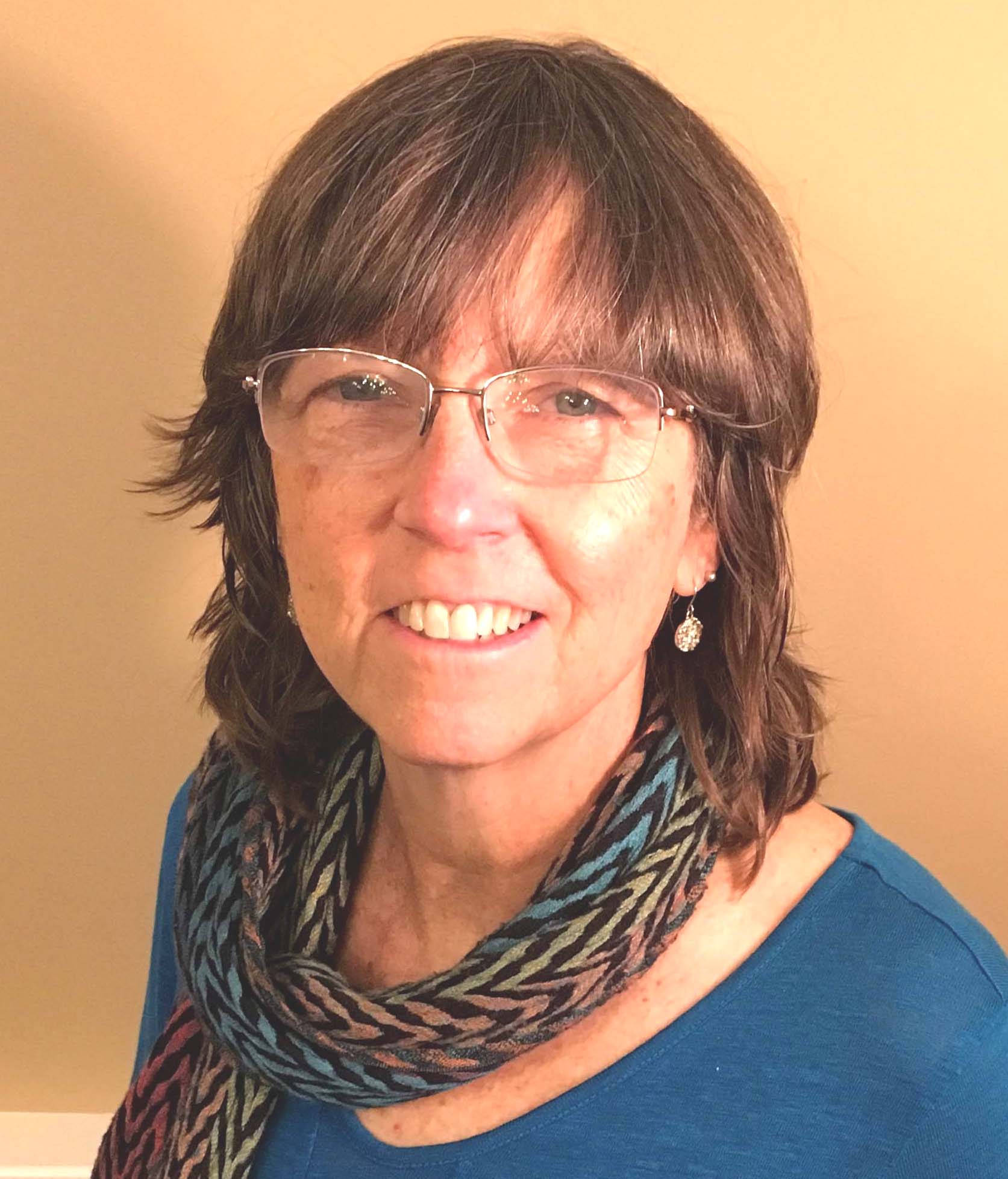
Su Murdock
FORUM ON FAITH
Be the light in someone else's darkness.
by Su Murdock
Published: December 1, 2018
Danbury News Times
Every year we go through a time of increasing darkness in the winter. Nights grow longer, and the daylight is visible for the shortest time in the whole year.
The lessening light affects everything around us. The greens and vibrant colors of spring, summer and fall slowly recede into the ground, leaving a more stark landscape.
Right now, we also seem to be surrounded by a different kind of darkness - incivility and division. At times it seems unrelenting, and we recognize our own darkness as well. People who have been diagnosed with cancer or another serious illness may feel like things are especially dark around them.
It is probably not a coincidence that Christianity, Judaism and other faith traditions use symbols of light in their celebrations during this darkest time of the year. There is a sense that we are all longing, remembering, watching and waiting for the light. The darkness arounds us invites us to ponder our need for something greater than ourselves.
At times we forget the gifts that can come in darkness. We rush to turn on lights, making things festive and bright. There is nothing wrong with celebrations and lights; however, we may be missing the invitation to first sit with darkness. Perhaps one gift of increasing darkness is an invitation to slow down, to go inward, and to reflect.
What is stirring in you? What is feeling particularly hard in your own life? What are your deepest longings? Who are the people around you who are in need or who are struggling? Spending time sitting in dark places and pondering such questions can make the season's celebrations much richer.
We are also invited to be the light in the darkness. How can we be a light to those who are suffering from illness or other challenges in their lives? What can we do to bring them some peace and comfort?
My advice is: Be present. Don't walk away from pain and suffering. If you show up for people in a dark place, they may feel less alone. The message is, "I will walk through this with you."
In my experience, people sometimes feel concerned because they don't know what to say to someone who is struggling. But I tell them that when you walk with someone you do not always have to be talking with each other. There will be times of silence. It's OK. Presence is powerful.
Those who have heard reassurances that they will be "fine" have told me such well meaning platitudes have only increased their sense of being alone. It may feel to them that no one wants to enter that dark place with them. A simple "I'm sorry" and a listening ear can be more helpful.
Practical help can also be a welcome gesture for someone in a time of struggle. Bring them a pot of soup; offer to pick up some groceries when you are out shopping. Find out what chores need to be done and ask if you can do those things. Shoveling snow, picking up kids from after-school activities-anything that can lessen the burden of daily chores can let people know they are not alone.
Holidays can be especially difficult. With the emphasis on joy, celebration and festivities, people who have been diagnosed with a life-threatening illness may feel that the holidays don't match their mood. If you are trying to offer comfort, I suggest you let them take the lead.
Some feel that holiday celebrations provide a nice respite from thinking about their illness. Others may not want to celebrate in the way that they usually do. I believe it is important to let them know that any and all of those reactions are OK.
Nature teaches us that the light will return, that darkness is only one season. In fact, every day we learn that lesson with the rising and setting of the sun. There is a constancy in life, and also the understanding that there will be dark times.That is the way of all of life.
We all have seasons of darkness. I believe that if we can be there for each other, bringing comfort, bringing light, bringing presence, our lives will all be richer. I hope this holiday season reminds us to watch for and also be the light that the world and our neighbors so desperately need.
Su Murdock is a Certified Oncology Social Worker and the Clinical Director at Ann's Place in Danbury, CT. Su's faith expression is from the Christian contemplative tradition. Ann's Place is a cancer support agency which provides support through counseling, support groups, wellness and educational programs to anyone whose life has been affected by cancer. Call 203-790-6568 or find them on-line at www.annsplace.org.
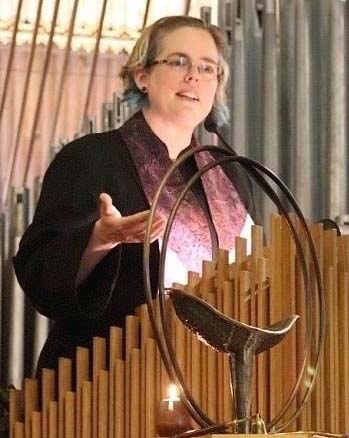
Rev. Heather Starr
FORUM ON FAITH
Engagement and elections.
by Rev. Heather Starr
Published: Novenber 17, 2018
Danbury News Times
On the day that you are most likely reading this, it has been almost two weeks since the November 2018 mid-term elections. I wonder what your takeaways have been, what surprises there have been, what upsets, what unexpected outcomes.
As I write this, it is just days before the election, and I am trying to be more curious than hand-wringing, more hopeful than anxious. My hope, most-of-all, is that people engage. That you participated. That you showed up, to the polls, and contributed your voice, as informed and intentional as you were able to be.
This is not only my hope, but my faith. I am a lifelong Unitarian Universalist (UU), which is atypical in our denomination. Some 80% of our members came from some other faith tradition, or were not previously religiously affiliated.
We say we hold a "non-creedal" faith, meaning we hold many different theological beliefs. The UU is guided by seven Principles, the fifth of which is: "The right of conscience and the use of the democratic process within our congregations and in society at large."
For me, that means it is a sacred calling for each of us to be involved. To express ourselves. To support and participate in the democratic process, and to respect the opinions and the participation of others.
For me, our tradition echoes the words of poet Adrienne Rich: "The personal is political. The political is personal." I hear it like a drumbeat in my head at these fraught times in our country: engage, understand, research, speak up, speak out.
My faith, my hope, my longing is that we maintain our engagement in the weeks and months to come, even as we hunker down during holidays and the Connecticut wintertime. There are so many ways to connect these days, so many ways to reach out and share with one another our stories and our concerns, and to listen with care to one another's.
In the rush of our daily activities, I think we can all do better at turning to one another and saying: "Your voice matters to me. What do you think? How are you feeling about the direction this or that is going in?" Because we each have unique perspectives. In UU shorthand, we say: "We each have a piece of the truth."
For instance, I am an atheist, lesbian, legally married, UU parish minister. I am also a parent, and I live in Connecticut, though I was born-and-raised in Oregon. Each of these aspects of my identity and my day-to-day life give me perspectives that might be quite different than the person sitting next to me in the coffee shop.
I also tend to be an introvert. More and more as I grow older, I crave more solitary "me time" - reference the "parent" part, above! And I love writing. So for me personally, one of the ways to be more engaged this past fall has been to write #PostcardsToVoters or postcardstovoters.org.
"Postcards To Voters" has more than 40,000 volunteers in every state (including Alaska and Hawaii) who have written close to 4 million postcards to voters in more than 130 key, close elections since March 2017. I love learning about down-ticket races across the country and writing a personal postcard sharing something they might not realize impacts their daily lives in their local community.
I love that this is something small that I can do: write a postcard, from one person to another, at my own expense, and put it in the mail. It's such a small thing, but it feels incredibly satisfying. It is tangible: I choose the postcards, write and address them by hand, feel them in my hands, and thoughtfully place them, in small batches, in an old-school blue mailbox. I don't have to spend more time online, thank goodness!
As I write, I am reminded that there are countless people out there, just like me in a few key ways: we are trying to live our lives, keep up with our responsibilities, and also be engaged in our communities and our country. I believe we need one another to not give up and retreat into our separate and isolated worlds.
So I hope you found ways to engage, or that you do in the months ahead. Keep at it. Keep participating. I believe that we are all in this together, that we need one another, that it matters when we show up.
Rev. Heather Rion Starr, Consulting Minister, Unitarian Universalist Congregation of Danbury, 24 Clapboard Ridge Road, Danbury, CT 06811. She can be reached at minister@uudanbury.org.
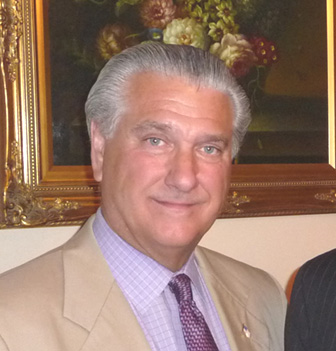
Joseph Walkovich
FORUM ON FAITH
Praying for the return of civility.
by Joseph Walkovich
Published: Novenber 3, 2018
Danbury News Times
I believe in human rights. I believe in celebrating diversities of age, gender, religion, race, ethnicity, sexual identity, and every profile under the sun. I believe in volunteering in the community. I believe in our country.
I believe in enjoying and protecting the sun, the moon, the stars, the ocean, the land and all of creation. I believe in animals and their right to be cuddled, not abused.
I believe life is grand at some points and very challenging at others. I believe in a lot of things.
I also believe in history. My history has been significantly influenced by attending St. James Episcopal Church of Danbury and by serving as the President of the Association of Religious Communities (ARC).
I've been influenced greatly by the Rectors and Assistants at St. James, Rev. Michael Coburn and Rev. Ann Coburn, Rev. Laura Ahrens, Rev. Iris Peterson, Rev. Joseph Krasinski, and at ARC, Rev. P. J. Leopold. I've been influenced by messages of sermons and the songs of choirs in our church sanctuary.
I've been influenced by prayer meetings in small rooms and by Board meetings in big rooms. In addition to those influences shared in official public places, my beliefs have also been guided by interesting people I have simply bumped into - in hallways, cafeterias, coffee shops, or the local diner.
I believe all people of good faith hold good principles. And that most principled people try to practice what they preach. But for all our good intentions and holy practices, I come back to the question Rodney King once asked, "Can't we all just get along?"
History has also taught me that beliefs evolve. People once believed the world was flat. People once believed children should be "seen but not heard."
In the Episcopal Church, people once believed only men could be ordained. In our country, people once believed only men could serve in public office or be on the Supreme Court. I'm glad those things have changed.
In our personal lives, individuals and families reach tipping points. Lives change when we get married, divorced, have a child, or suffer a loss.
Societies also have tipping points. Peace gives way to war and vice versa; war gives way to peace. Where in days gone by women lacked basic civil rights, now we see an unprecedented number of women running for public office.
History causes me to rejoice whenever there is progress.
I believe there is still much progress to be made, especially in our politically divided nation. For instance, if I were to meet you and say the word "Trump," I wonder how you would react? If we were to meet and I were to say the word "Kavanaugh," I wonder if that would be a conversation spoiler.
I pray for the return of civility. It was once possible. I believe we can get there again. I believe we must.
I believe we can no longer afford to speak just in terms of "my faith" or "my heritage." Because I believe we are all part of one human family. That includes voters too. Whether we identify with "blue" or "red," we need to be able to speak factually. And civilly.
I believe we owe it to God our Creator to strive for unity. We owe it to one another to be able to tolerate different beliefs, and to listen to one another in a respectful manner.
I believe in history, and in learning from it.
I am grateful that God has so graciously given us days, years, and even centuries to get things right with one another. I look forward to being able to answer Rodney King's "Can't we all just get along?" question with a "Yes."
I look forward to ARC's Interfaith Thanksgiving Service at 7pm on Monday, November 19, at the Danbury United Methodist Church on Clapboard Ridge Road. I hope to see you there, because I believe this year's theme is especially appropriate at this point in history: Imagining Civility."
Joseph Walkovich, Warden, St. James Episcopal Church of Danbury and Board President, Association of Religious Communities (ARC). walkovich2000j@aol.com.
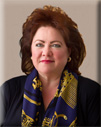
Rev. Karen Anne Halac
FORUM ON FAITH
Strengthening international faith connections.
by Rev. Karen Anne Halac
Published: October 20, 2018
Danbury News Times
This past week, pastors and delegates of the American churches in Berlin, Paris, and Vienna flew to the United States for the annual meeting of The American & Foreign Christian Union held for the first time in Ridgefield, Connecticut. European representatives assembled with U.S. board members who traveled from twelve states to do the work of the ecumenical and global American churches in Europe.
From October 11th through the 14th, 41 lay leaders and ministers from around the world put their shoulders to the wheel to support and offer encouragement to these exceptional faith communities. The First Congregational Church Ridgefield hosted the meetings, and generous volunteers offered hospitality to their international guests in the newly renovated "church by the fountain," which was gathered as a congregation in 1712.
Ridgefield congregants and volunteers observed how the AFCU and its member congregations possess hard-won wisdom to share in a pluralistic society too often marked by fear, hostility, and a climate of alienation. Delegates attested to the ways that these international congregations are able to bear witness to God's love for the entire world, because the entire world worships in these churches, and participants ultimately take what they have lived and learned back to every continent.
Imagine worshipping with members from more than fifty countries and twice as many denominations, and then sharing a cup of coffee following services with Sri Lankan evangelicals, Swedish Lutherans, Filipino Catholics, Hong Kong Presbyterians, Brazilian Pentecostals, Ghanaian Anglicans, Greek Orthodox, Nigerian Methodists, and so many more who all call the same church "home."
These vibrant and diverse European partner churches demonstrate what it means to live their faith in unified and reconciled ways. At a time when many increasingly secular European countries are often said to be post-Christian, strengthening these international and interdenominational faith connections makes a real difference. These spirited houses of prayer for all people serve as beacons of hope for a world that is troubled by rapid globalization and mass migrations.
Eruptions of gun violence, terrorist actions, and political tensions among nations have resulted in distrust of "otherness." This new wariness is experienced more acutely as events such as the Paris Bataclan terrorist attacks in 2015 have sharply threatened already eroding assumptions of safety. AFCU member church budgets must now include provisions for security that were previously unnecessary.
All Abrahamic faiths - Judaism, Christianity, and Islam - call believers to hospitality rather than suspicion. All three faiths share sacred texts that unequivocally require followers to welcome and care for the stranger. I believe these practices of hospitality are expressions of God's love for all people, and I understand them as essential elements of Christian discipleship.
AFCU member churches live this scriptural vision, as they honor the often divergent beliefs in their midst. Visitors to these unique churches are always astonished to discover joyous worshipping communities with congregants whose faces more greatly resemble the General Assembly of the United Nations than any church they have ever attended.
Discovering how best to honor the particularity of each member's specific denominational and doctrinal histories, beliefs, and hopes is challenging. Balancing diverse points of view without allowing any of them to override the particular claims of others is even more complex, rendering these communities living laboratories of peacemaking, mercy, and justice. Members of these churches almost always arrive with preconceived points of view, and then gradually learn to embody the humility to disagree agreeably, ultimately affirming that what unites is far more precious than whatever divides.
On Sunday, October 14th, AFCU board president Theodore Ziemann addressed The First Congregational Church Ridgefield, expressing gratitude for their warm Connecticut welcome and bringing them greetings from the European churches.
The Ridgefield congregation gained a deeper appreciation of their greater connection to the church universal and extended church family.
The hospitality and reconciliation practiced in the global churches of Berlin, Paris, and Vienna demonstrate how diverse fellowships can be harmonious, and serve as unifying exemplars in a world where religion is so often maligned as the cause of power struggles and violence. These unique communities of faith offer uncommon expressions of diplomacy and international understanding for our time, which is very good news indeed.
The Reverend Karen Anne Halac, Associate Minister, The First Congregational Church Ridgefield. 103 Main Street, Ridgefield, CT 06877. 203-438-8077 or karenh@firstcongregational.com.
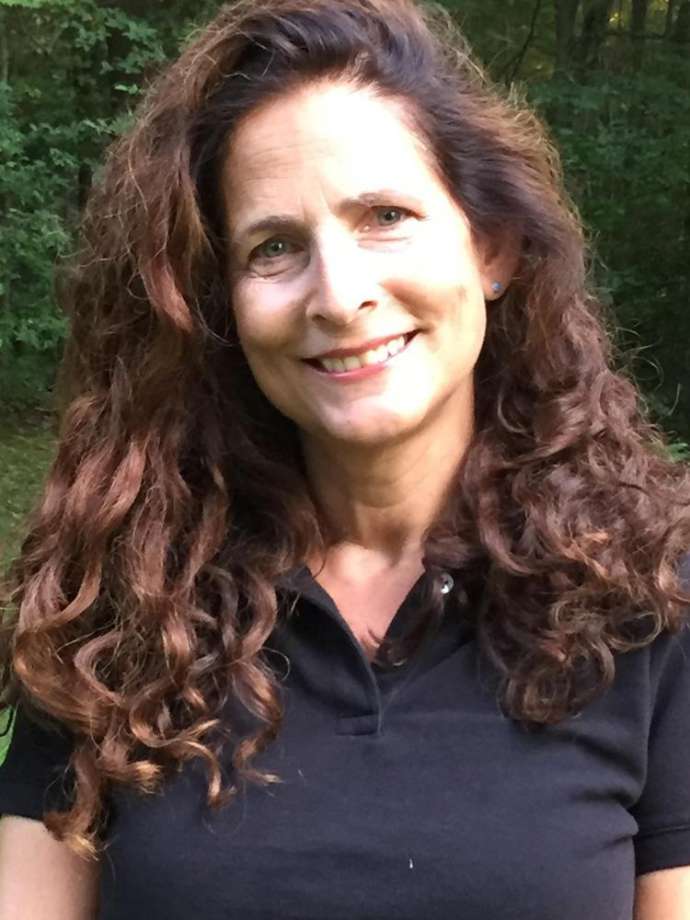
Diane Sarna
FORUM ON FAITH
Where faith and ethnic indentity meet.
by Diane Sarna
Published: October 6, 2018
Danbury News Times
This past August, I travelled to Niagara Falls for my first time. And what would a trip to the Falls be without a ride on the Hornblower, Canada's tour boat cruise?
On the boat, as I gazed out from under my red plastic poncho, time came to a halt. Churning water below me, blue sky and roaring falls above me, my immediate thought was "This must be a bit like heaven." I assumed my close encounter with Mother Nature would be the most spiritual portion of our trip, but I was mistaken.
The next morning my cell phone pinged. I'd been waiting rather impatiently for my Ancestry DNA results. I was more anxious than some to open to the pie chart breakdown of my ethnic background.
I was adopted and raised by a loving Roman Catholic family - an Irish mother and Polish father. I am a practicing Catholic with a unique caveat - I married a Jewish man.
I wanted our children to have what I never really did: a clear identity. I wanted my girls to be proud to be Jews, proud of their Zadie (Yiddish for Grandfather) who had survived the Holocaust, and proud to be part of our Jewish community at the United Jewish Center in Danbury, CT.
I barely rubbed the sleep from my eyes before opening my email. A small button invited me to view my results. Fifty-five years is a long time to wait for an ethnic identity. I hooted, waking my husband. "God is laughing at me!" I responded. According to the email, I was 75% Eastern European Jew.
"I told you so," responded my husband. "I always knew you were Jewish!" I texted my adult children. Their responses went something like: "Wait. What? Mom's a Jew?" "Way to go, Mamala!"
Mamala is Yiddish for "little mama," and it has been my email address for 20 years. The name originated from my girls' Bubbie (Yiddish for Grandmother) who called each granddaughter her little "Bubbala" or "little baby" in Yiddish.
So many of the decisions I've made regarding marriage and children seem to have led me to this pie chart. I fell in love with a Jewish man, married out of my faith, and raised Jewish children.
I expected that I should feel different now. Others would see me differently. My life would take a new turn. But no. Nothing really changed. A few funny texts were exchanged with friends and family, but that is it.
I suppose I was looking for an easy solution to discovering who I really am or to explain some of my life choices. Finding the answers in my DNA seemed like a good bet.
But what about faith? I was raised by a religious family, attended weekly Mass and still do today. I even graduated from a Catholic women's college. Yet, I work with Jewish teens on community service projects, serve on our temple's governing board and religious school committee, and attend weekly Shabbat services.
Friends joke that I must be trying to get to Heaven through either the front or the back door! Others scratch their heads and say I confuse them when I mention one of my upcoming church or temple events.
Upon hearing my DNA results, a few asked, "Oh, so now that you are Jewish, does that mean you are only half Catholic?" One thing I have always felt strongly about is that you can't be "half" when it comes to faith. A half a Catholic? A half a Jew?
Most of us "inherit" a faith as children. Certainly, there was a very high probability that my Irish mother would be Catholic and raise her four adopted children as Catholics. That doesn't mean my offspring are half my faith. We humans aren't simple math equations!
To make things more complicated, how many embrace their cultural identity but not a religion? How many lose faith as adults or change their faith? Early in my marriage, I learned that being Jewish and practicing Judaism are not the same thing.
I don't go to Mass and Shabbat services because of my DNA. I also don't see myself as half of a Catholic or half of a Jew. My participation in both houses of worship is more about balancing my love for the faith of my childhood with the faith of my husband and children.
This balancing act is at times exhausting but always fulfilling. I can't imagine not attending church. I wouldn't want to leave the loving extended family we have at temple.
My latest Ancestry DNA update has me at 83% Eastern European Jew. Why do I keep checking that pie chart? Faith and DNA, oy veh!
Diane Sarna, United Jewish Center, 141 Deer Hill Avenue, Danbury, CT 06810 MamalaD@aol.com
FORUM ON FAITH
Catholic school education provides valuable experiences.
by Emma Mortara
Published: September 22, 2018
Danbury News Times
Since the tragedy at Sandy Hook Elementary School, there have been 290 school shootings across the United States. These incidents include mass shootings like the one at the high school in Parkland, Florida, accidental discharges of firearms, after-hours fights in school parking lots, and suicides.
All of these tragedies have caused a wave of sadness, as well as anger, to sweep over our nation's schools, to the point where violence is occurring to protest violence itself. However, in my small Roman Catholic school community, we have been able to come together as one.
My religious education has reassured me that all who have died will be safe with our Lord in heaven. And because we are allowed to pray openly for all the innocent souls that were lost, I feel our prayers have helped us to somehow overcome these tragedies. We have learned to appreciate how special life is.
The current critique of religious education, and of Roman Catholic religious education in particular, risks undermining the place of faith development in young people - just at a moment in our nation's history when deeper reflection on religion, belief, spirituality and ethics could contribute enormously today to modern society.
As a student at Immaculate High School in Danbury, and having gone through Catholic grammar school, I feel as though I have keen insight and knowledge of the important role religious education can play in strengthening faith. And yet, over the years, I feel like I've heard every possible derogatory comment or critique of sending a child through a religious educational system.
The most popular one, that even my parents have expressed concerned over, is the idea that students at private Catholic schools are too sheltered from what actually happens in the real world. But just because I wear a uniform to school each day and have religion class as one of my subjects, that does not mean I don't live in reality.
While it is true that my classes are usually quite small (my 8th grade class had only 14 students) and I am with the same people all day, every day throughout the entire school year - our school day ends at 2 pm. After school, we each resume our own realities at home and out in the world, where we each have obstacles and challenges to overcome just like any other child who receives a nonreligious education.
Another common stereotype of students receiving a private-school education is that just because parents may pay high tuition costs, we are all wealthy. Even worse is the assumption that we all grow into young adults who believe we are entitled to certain commodities in the world over others.
Although this may be true for some students, most of my classmates are not one ounce of that stereotype. In my experience, with a strong religious foundation built in place, in everything that is done and in every classroom discussion, students actually are able to see a different perspective in multiple subjects and topics.
Children in Catholic schools are taught to respect the ideas and opinions of others at a young age, using the Bible's golden rule, "treat others how you would like to be treated," as a main teaching tool.
Even if one is a part of a different religious group or is different in one way or another, we are taught to treat everyone with respect and provide them support in whatever way possible. I believe this is enormously important in today's modern society - where it seems that respect for those of differing beliefs is not shown nearly enough.
I believe religious education in schools contributes not only to the personal reflection and development of young people, but also teaches reverence, responsibility, and heightened respect for the beliefs of others. It helps build a diverse but cohesive society - and one, perhaps, with less violence.
With my religious-based education, I have been brought up learning all the usual subjects and topics that one is required to learn in school, while also being strengthened in my faith along the way. And that is something I know I will carry with me throughout my entire life.
Emma Mortara, Immaculate High School Student. She can be reached at emortara@myimmaculatehs.org.
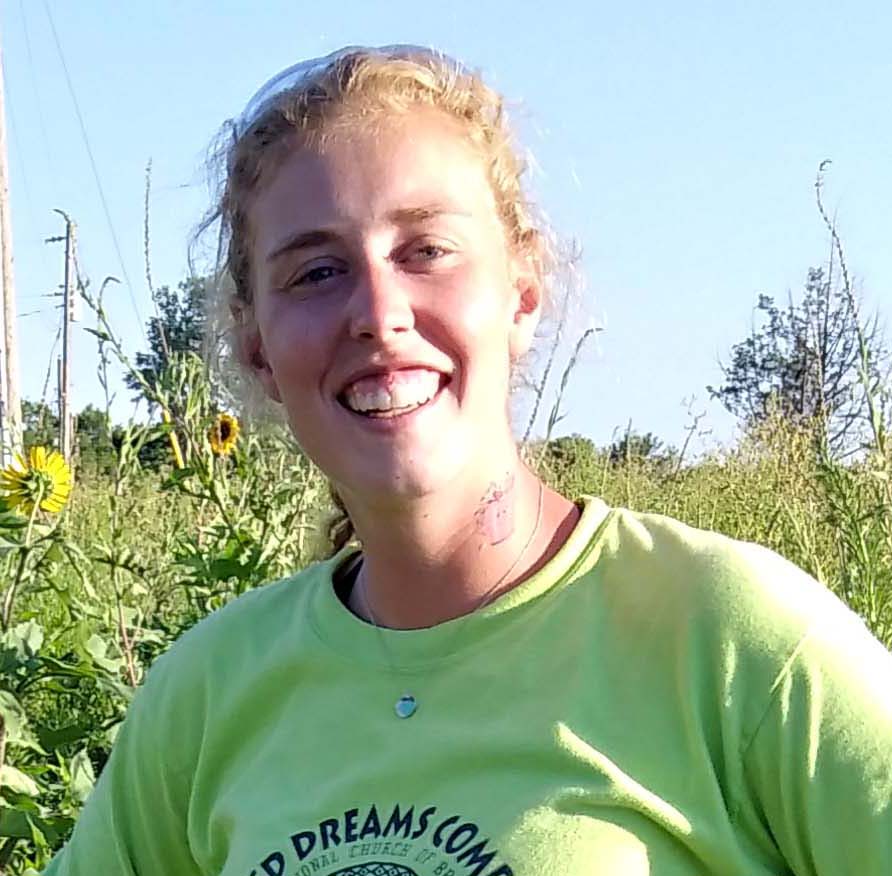
Kate Matson
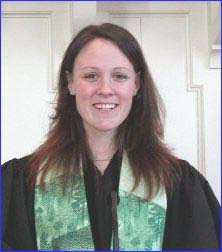
Rev. Jennifer Whipple
FORUM ON FAITH
Youth listen, learn and put
faith
into action.
by Kate Matson
Published: September 8, 2018
Danbury News Times
As Associate Pastor at the Congregational Church of Brookfield for 13 years now, I have been leading mission trips to help others in need every summer. Each year, our team includes about 10 adult chaperones and 30 teenagers in Senior High. In recent years, we have also brought along a few college-age advisors, those who were youths on past mission trips. This is the reflection of one of those young adults, Kate Matson, who just this spring graduated from Franklin and Marshall College in Lancaster, Pennsylvania. She writes:
One of my favorite hymns is Daniel Schutte's "Here I Am, Lord." The chorus begins with these words:
Here I am, Lord. Is it I, Lord?
I have heard you calling in the night.
I will go, Lord, if you lead me.
I will hold your people in my heart.
I am reminded of this hymn every time I go on a mission trip with my church. Although the lyrics are from the call to the prophet Isaiah (in Isaiah 6:8), in the past I always attributed those words to my own call to serve; a bit selfish, maybe, but I was excited to do the work of the Lord and spread His love with my own two hands.
As 37 of us traveled to South Dakota this summer, I found I had a new perspective as an adult chaperone; I found new meaning in that song because of the younger people with me.
Since I am 21 years old, I have heard for many years comments about my generation and those younger than me; people make jokes about our reliance on technology and our dwindling work ethic. I am proud to say that the youth of our church disprove those judgments tenfold.
I have had the opportunity to watch many of our church youth grow from children into teenagers. In the years since I graduated high school, I have been away at college, but when I have joined them as an adult advisor for their summer mission trips, I could see how well our church has instilled in them lessons about faith and service.
Their faith journey led them this past July to South Dakota, and the hard work I saw them do for Habitat for Humanity proved that these kids had been listening as they sat with me in the church pews. We all ended our week tired, happy, and overwhelmed by all that we had been learning, loving, and living.
South Dakota is home to a community of Native Americans living together on the Crow Creek Reservation. These people have a beautiful and unique culture, and an inclusive perspective on life, that we were able to experience first-hand at a Sweat Lodge and through conversations with many amazing people.
For example, Deb gave up a comfortable life in a five-bedroom home 45 minutes outside the reservation to be closer to her children and grandchildren. Now she lives in a 60-foot trailer. She knowingly purchased a fixer-upper on the reservation, willing to put in the effort to be closer to her family and fight to make a better life for them, and for others.
Unfortunately, the statistics on alcoholism and suicide rates are staggering on the reservation, and we witnessed what community members are facing first-hand. Deb is a leader there, a voice of reason against the violence, drugs, and alcohol that plague reservation life. But because of her willingness to speak out she has also received threats against her life and family.
Our kids did not turn away from Deb and others like her - instead asking questions and listening fervently, wondering how they could help even more. And in less than three days, our team was able to re-shingle Deb's roof, install a new toilet, and fix the bathroom flooring.
It was amazing to see our teenagers' commitment to learning new skills, excitement in climbing onto a roof, and focus on getting jobs done right. But it was not just their speed, efficiency or quality of their work that stood out the most to me; instead, it was the eagerness and determination of our youth that was beautiful to witness.
We were all there to help, but what I loved knowing most was that we were all there to listen as well. We heard the Lord calling, and we responded with enthusiasm and grace, energy and love, hopefulness and trust.
The Rev. Jennifer Whipple, Associate Pastor, Congregational Church of Brookfield (United Church of Christ), 160 Whisconier Road, Brookfield, CT 06804. Jennifer@uccb.org
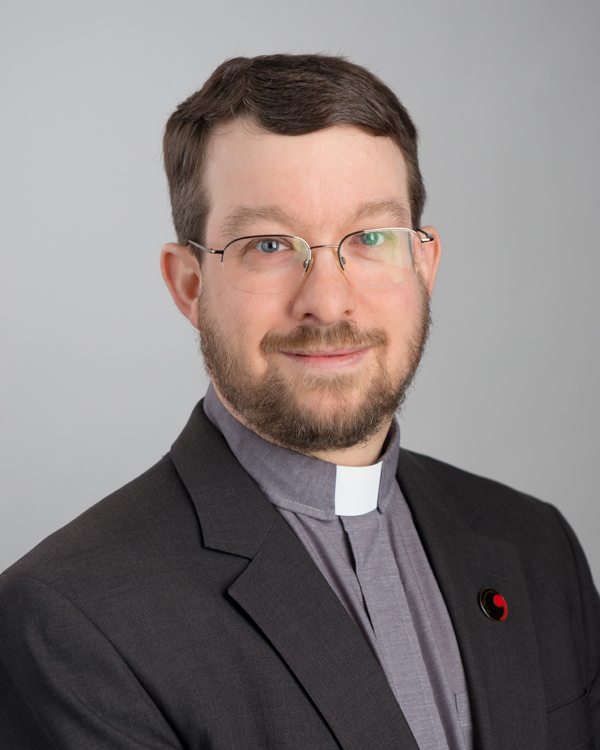
Rev. Paul Bryant-smith
FORUM ON FAITH
Open your spirit to a greater connection.
by Rev. Paul Bryant-Smith
Published: July 21, 2018
Danbury News Times
In my work as a hospital chaplain, I am often called upon to offer blessings - for new office spaces, for large-scale medical equipment, and for people as well. One of my favorites is the "Blessing of the Hands" service for nurses and other hospital staff.
Each spring, during Nurses' Week, I visit each of the units of my hospital and offer a non-sectarian blessing to those who wish to receive one. I pour water over their hands and offer a brief prayer that acknowledges their work as being holy.
Every year, somebody asks if I'm using Holy Water for the blessing and I respond with some variant of "in my religious tradition, all water is holy." That response is a quick short-hand, because I want to let the hospital staff know that I'm not imposing one particular religion's theology or rites on anyone else.
Although I am a Christian pastor, the water I use is just plain water - in that it does not represent just one faith, but is instead part of the holiness of nature, shared by all people and all religions.
A few weeks ago, members of my congregation, the King Street United Church of Christ, gathered at the public boat launch at Squantz Pond for what has become an annual event for us, a brief service where we offer blessings for canoes and kayaks, modeled loosely on the "Blessing of the Fleet" services that often take place in coastal communities.
The service began with the reading of a passage of scripture and a brief prayer. Then the children who were present at the service took turns doing the blessing, pouring a bit of water - taken straight from the pond - over the bow of each of the dozen or so boats that people had brought to the event.
Following the blessing, we spent the afternoon paddling around together, then rafting up for lunch in a small cove within earshot of a small waterfall. The afternoon spent kayaking with friends was a reminder that, indeed, all water is holy.
Around this time every year, one of my friends always states that she is in need of what she calls "kinetic hydrotherapy," by which she means a trip to the beach. For her, swimming in the surging salt water connects her with the rhythms of the planet, helps her unwind from life's daily stresses, and lets her re-center her spirit. For other people, just walking along the beach and smelling the salt air has the same effect.
In the Hebrew Bible, Psalm 24 declares, "The earth is the Lord's and all that is in it, the world, and those who live in it; for he has founded it on the seas, and established it on the rivers."
In the baptism liturgy of the United Church of Christ, we celebrate the divine presence connected to water, recalling first how the spirit of God brooded over the waters of creation. The prayer continues by remembering how the waters of Noah's flood cleansed the earth, how the Hebrew people passed through the waters on their journey from slavery to freedom, and how God provided water for the thirsty wanderers in the desert.
The prayer also recalls how Jesus was nurtured in the waters of Mary's womb, how he became "living water" to the woman at the Samaritan well, and finally washed his follower's feet on the eve of his betrayal. In our faith stories, our connection to water runs deep.
All it takes is one step outside to experience water out in the world as well. Brooks that meander through sun-dappled woods, salt marshes where we might chance to see an egret or heron, waves crashing on our rocky New England coastline; all of these call us to a greater awareness of our place in nature, as well as our responsibility for caring for God's creation.
This summer, I encourage you to experience a bit of "holy hydrotherapy." Whether close to home or as part of a far-flung adventure, make your way to a body of water and open your eyes to beauty. Drink in the sights and sounds and smells.
Feel the salt breeze on your cheek, but do more than that. Open your spirit to a greater connection with nature and with God. As you catch the dazzle of sunlight on the water, may you also catch a glimpse of the divine.
Rev. Paul Bryant-Smith is pastor of King Street United Church of Christ at 201 South King St. in Danbury. He can be reached at 203-748-0719 or by email at revpaulucc@gmail.com.
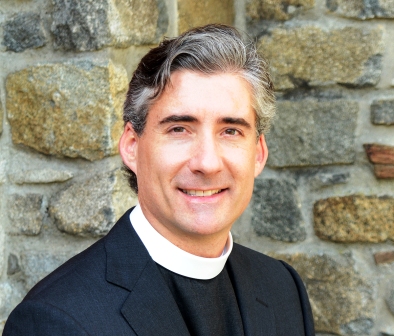
Rev. Joseph Shepley
FORUM ON FAITH
Preaching important for spiritual growth.
by Rev. Joseph Shepley
Published: July 7, 2018
Danbury News Times
"Preach the Gospel, and if necessary, use words." Attributed to St. Francis of Assisi, this oft-quipped admonition reminds us to practice what we preach.
For those called to the Christian ministry, preaching is foundational to worship. From their earliest days, following the example of Jesus, Christian faith leaders have devoted themselves to the public reading of scripture, and to preaching.
Preaching takes many forms based upon one's particular tradition. In the Episcopal Church, we base our preaching on pre-assigned readings from The Revised Common Lectionary, a resource followed by many other denominations as well.
Each Sunday it lists four readings from the Bible, following the liturgical year. This includes a reading from the Old Testament, a Psalm, the New Testament, and the Gospel. Those churches following this practice share the same readings each Sunday, which allows us to read a balance of the Bible every three years, while also creating commonality across demoninational lines.
The word liturgy means "the work of the people," and in our congregation, we allow lay people to participate actively in worship by reading scripture. I hope this sharing of leadership with a team of lay readers enhances their own sense of ministry. When we invite the entire congregation to read the Psalm as a responsive reading, I hope they are taken out of the passive role of audience and placed in the active role of leading.
Lectionary preaching also allows a variety of others to take part in planning future worship services. For example, when church musicians know the reading schedule in advance, they can make thematically appropriate selections early enough to rehearse them well. And our Sunday school teachers are able to reinforce a sermon topic with our children by following the same calendar of lessons that their parents hear in the adult liturgy.
In the Episcopal Church, while it is generally the Rector's prerogative to select all music, I instead allow our music leaders the freedom to choose and thus share their own creative gifts. I enjoy the surprise each Sunday of discovering of how my message lines up with what they have chosen.
For the preacher, the pre-appointed readings determine the boundaries in which a message is formed, ideally preventing personal agendas, subjective scripture selections and the neglect of especially challenging passages.
The famed 20th century theologian, Karl Barth, once said that every preacher should hold the Bible in one hand, and a newspaper in the other. His point was that in preparing a weekly message, the preacher would do well to consider the modern context in which the Word of God is interpreted and spoken.
It has been said that faith is "caught" more than it is taught. Preaching allows scripture to be filtered through one's personality, which makes each preacher unique, and at the same time, displays on a weekly basis how a divine communication can work in spite of the imperfect messenger.
Many listeners cannot remember specific sermons in much detail, at least not for long - although there are exceptions, of course. Someone once said that preaching is a bit like eating, in that we may forget what we ate last week, and it may not have been the best meal, yet we know that a steady habit of eating is essential to living.
And so it goes with sermons. As church-goers consistently gather around God's Word, week in, and week out, our spiritual health is able to grow and thrive.
One of my great joys since 2009, when I came to St. Paul's in Brookfield, has been our ecumenical Thanksgiving Eve service. Each year we have the opportunity to celebrate with our fellow clergy from other Brookfield churches.
We rotate host churches each year while inviting the newest clergyperson in the community to serve as preacher. This allows us to elevate the gift of preaching as we all participate in the rest of the liturgy. And as we follow the appointed Thanksgiving readings from the Common Lectionary, we get to hear new voices reflect on the same theme.
As they observed the early Christian church, outside observers noted how the followers of Jesus loved one another. We hope that is still true today, as we work toward Christian unity in Brookfield. At the very least, as we preach from the Common Lectionary each Sunday, we know we are literally on the same page.
The Rev. Joseph Shepley is Rector of St. Paul's Episcopal Church, 174 Whisconier Road, Brookfield. The church's phone number is 203-775-9587. His e-mail is shepley.j@gmail.com.
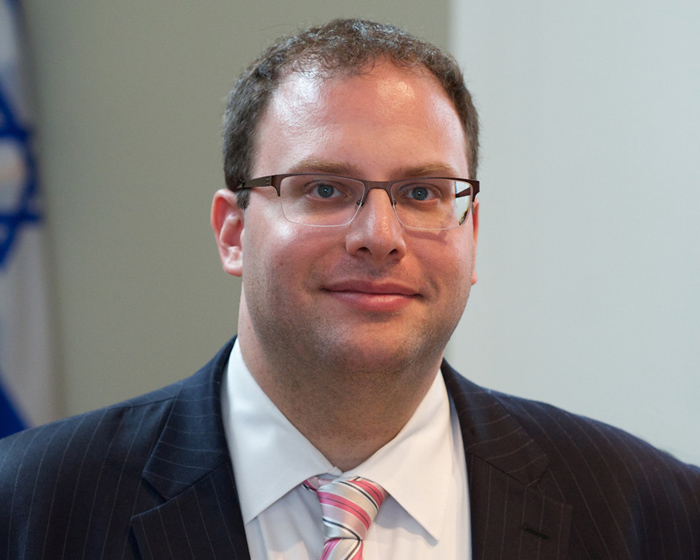
Rabbi L. Reiner
FORUM ON FAITH
The importance of teaching kids about the Holocaust."
by Rabbi David L. Reiner
Published: June 16, 2018
Danbury News Times
Three years ago this weekend I celebrated my first Father's Day by writing a letter to our 7-month-old son for the Forum on Faith. I am in awe with how our son has grown and how much the world around us has changed over the past 3 years. My ministry and my faith continue to evolve as my worldview changes.
My wife and I recently travelled to Amsterdam for a conference, and we brought our son along. While most of our free time was spent riding on canal boats and visiting every playground we could find, we did make time to visit one museum - the Anne Frank House.
Explaining the Holocaust to a 3-year-old in a way that was not too scary was not easy. I was surprised when-after we returned home-I overheard him describe the "serious museum" as one of the highlights of the trip: "the house where the people were living and the bad guys came and then the people died and then the bad guys died."
I am often asked the appropriate age to start teaching children about the Holocaust, and now, as a parent, I appreciate the complexity of the question in a new way. With so much evil and darkness in the world, I would much rather keep our son focused on the good of humanity and away from the darkest moments of history.
And yet, most of us never hesitate to teach our children ancient stories about good triumphing over evil, often drawn from our sacred scriptures: the Israelites overcoming Pharaoh in the Exodus from Egypt; Noah and his ark and the conflict between Joseph and his brothers in the book of Genesis; or Judah and the Maccabees overcoming the Seleucids.
Not only that, this theme of good defeating evil is repeated in nearly every Disney movie ever made. So presumably, it is a theme that speaks to children.
Perhaps our historical proximity to the Holocaust causes squeamishness. Unlike ancient stories from scripture or fictional accounts on the silver screen, memories of the Holocaust may feel a little too recent, and a little too real.
We may comfortably teach the story of Pharaoh ordering the murder of Israelite babies, but it is too soon to speak of similar Nazi efforts.
The ancient Greek playwright Euripides once wrote, "Whoso neglects learning in his youth, loses the past and is dead for the future.": Perhaps these words inspired the more recent philosopher George Santayana to write, "Those who cannot remember the past are condemned to repeat it."
In other words, if we do not teach our children about the Holocaust, we may be condemned to repeat one of the darkest moments in human history.
The recently enacted Connecticut law requiring high schools to include the Holocaust and other genocides in Social Studies curricula will help our students learn about the past. Following three reported incidents of swastikas in Ridgefield's Ballard Park, one of our favorite playgrounds, it would appear that not everyone in our world fully appreciates the impact of symbols of hatred.
Three years ago I could not imagine that I would be teaching our son about swastikas or Anne Frank. I still try to shield him from the hatred and violence that persists in our world, from the symbols of hatred that have appeared at his favorite playground.
We cannot forget or change what has happened in the past. But I believe learning from the past is one way we can work toward a better future. And so we teach our son the lessons of our faith:
Ani ma'amin I believe with perfect faith that a better day will come, a day when bloodshed will be no more, when soldiers shall turn their swords into plowshares, their rifles into pruning hooks. A day when (as our liturgy proclaims) "when corruption and evil shall give way to integrity and goodness [when all] will become one in spirit and one in friendship."
On my first Father's Day and again today I prayed to God, "M'kayeim Emunato leesheinei afar-Keeper of faith with those who sleep in the dust." Help us to teach and to learn, to bring healing to the sick, freedom and justice to all in the world, support and comfort for all that together we may bring about a better world, free of hatred and bloodshed, filled with unity and peace. Amen.
Rabbi David L. Reiner, Congregation Shir Shalom of Westchester and Fairfield Counties. 46 Peaceable Street, Ridgefield, CT 06877. RabbiReiner@OurShirShalom.org or 203-438-6589
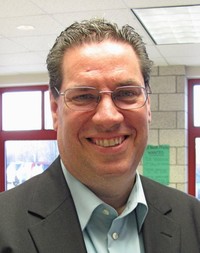
Rev. John Parille
FORUM ON FAITH
Lesson: There is no place that God is not."
by Rev. John Parille
Published: June 2, 2018
Danbury News Times
I'm a small town, stay at home kind of guy. World travel has never been part of my vocabulary. But back in February, I made the long journey to Israel to see the Holy Land with a group of 5 pastors from 5 different Methodist churches, along with 30 or so members from our congregations.
For a man 6 foot 3 inches tall, an 11-hour plane flight creates many challenges. However, after 10 days of being in the Holy Land, it all seemed worth it. We landed in Tel Aviv and jumped a bus to drive north to the region of Galilee.
The Sea of Galilee, where Christian scriptures say Jesus performed many of his miracles, was amazing.
The countryside around the sea is pretty much unchanged from the days of Jesus. There are lush hillsides filled with olive trees and other beautiful plant life. Here, on the northwestern shore of the Sea of Galilee, is the Mount of Beatitudes, the location where tradition holds that Jesus gave his famous Sermon on the Mount.
What was striking to me about this mountain was that it is still undeveloped. It inspired my imagination as I gazed out over the beautiful waters, because I could not help but think that this view from the Mount was exactly what Jesus saw; nothing had really changed. The landscape looked the same as it had been when Jesus walked there. I could feel a presence of peace.
We went to many other holy sites: Jerusalem, Bethlehem and Jericho. Each place offered something new and exciting. Seeing places that I had read about for years in the Bible helped me to visualize my faith history in a new and deeper way.
As the plane was taxiing down the runway to leave, I was wondering where I would put my long legs for the next 11 hours. However, as we lifted up and over the country of Israel, I felt myself feeling a bit of emptiness. Would I ever feel that strong presence of God again, as I did here in the Holy Land?
This feeling stayed with me for a few days as I was recovering from jet lag and began to eat food that was not flavored with cumin. Was God's presence stronger in Israel? Was it any less here in good old Connecticut? Then it hit me.
The Bible tells us in many places that God is omnipresent; that is, present at all times and in all places. In other words, that means God has nowhere to go. God never has to be at a certain place at a certain time; God is everywhere.
Some Christians, I think, get this idea that God is at their church. I believe God is in our places of worship, of course, but this idea of omnipresence means we affirm that God is also in our homes, our workplaces, and even riding with us in our cars.
My journey to the Holy Land left me with the conviction that God is in Israel and in Connecticut too. There is no place that God is not. So, what was different for me as I walked the old streets of Jerusalem or served communion at the Garden Tomb? I believe that what was different was me, not God. My trip had changed me.
I have come to believe that we do not need to go somewhere special to seek God's presence, but are called to worship God wherever we may be. I think I felt closer to God's presence in Israel, because I was completely focused on the things of God when I was there.
During our trip, I was not checking emails and not scanning Facebook - I was just going from place to place thinking about Jesus, and all the incredible locations where the Christian Gospels record that his ministry took place. It then hit me, I can do that right here in my own hometown!
My trip to Israel helped me better understand what the Letter of James says (James 4:8), "Draw near to God and He will draw near to you." I realized I could draw myself into God's presence by just letting go of distractions for just a few minutes in prayer.
I realized that to find God's peace and presence in my life, I didn't need to get on a plane. I could seek God's face without ever leaving my own backyard.
Rev. John Parille, Senior Pastor, Bethel United Methodist Church, 141 Greenwood Ave. Bethel, CT
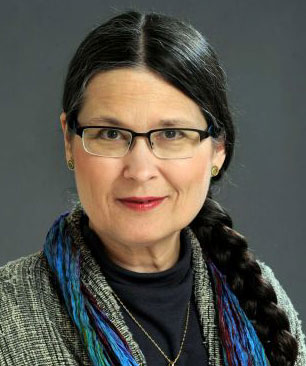
Rev. Bryn Smallwood-Garcia
FORUM ON FAITH
May 15th storm wasn't the only "act of God."
by Rev. Bryn Smallwood-Garcia
Published: May 26, 2018
Danbury News Times
Ironically, for those of us who still picking up from the deadly storms of May 15, Pentecost fell on May 20. That is the great holiday of the Christian church when, as recorded in the Acts of the Apostles, "suddenly from heaven there came a sound like the rush of a violent wind" as the Holy Spirit arrived.
As we have seen, however, when a mighty wind blows through a place, it is not usually considered a spiritual moment. And certainly the phrase "act of God" is not used to describe anything sacred or good, but in reference to legal issues for insurance claims after a natural disaster.
But after the extreme weather of the week before last, I am looking at "acts of God" in a new way. As a faith leader, I hate to see God blamed for bringing death and destruction upon the innocent.
Instead, I want to lift up the arrival of the Holy Spirit in its Christian context, as something new and positive. The church was said to be born that day in ancient Jerusalem, in the outpouring of the power of love to connect and restore a broken and fearful community.
And in Brookfield, in a similar way, I saw a Pentecost "act of God" in what happened after the storm ended.
When dawn arrived, our neighbors went outside to survey the damage, and to share stories: "Are you and your family OK?" "Was your home damaged?" "Where were you when it happened?"
The night before, when the storm hit, no one wasted time with deep thinking. We got to safety. At the five-way intersection in front of my church, in my tiny convertible, when I saw the weathervane spinning atop our swaying steeple, I turned into the middle of our parking lot and hunkered down. I don't think I even thought clearly enough to pray.
In our church parking lot after the 110mph winds and deluge of rain stopped, people emerged from vehicles and came inside. One of our members served up sundaes from the melting ice cream in our freezer.
Could it be that Holy Communion is about more than wafers and wine? Sometimes an "act of God" brings a topping of whipped cream and the real joy of being alive.
Next, I brought cones and caution tape and helped volunteers rope off blocked roads. We tried to turn panicked commuters around before they could crash into the downed trees or power lines. Some brave young men stood at that intersection until long after dark, at real risk to themselves, in order to save others. I want to name their strength and patience another saving "act of God."
As the evening wore on, we offered water and bathrooms to those still in cars. I opened up the church nursery to a family with small children. Our associate pastor, the Rev. Jennifer Whipple, who couldn't get home to Naugatuck, stayed overnight with a half-dozen other stranded drivers. They slept on our carpeted sanctuary floor on sheets and blankets that had been donated (but not yet delivered) to a homeless shelter. Hospitality to strangers can be another "act of God."
By Thursday, Mennonite missionaries from Pennsylvania showed up in the church parking lot, volunteering to help us and anyone else who needed them with tree work. Said one of their volunteers: "I just want to follow Jesus's teaching and his example. I want to do what Jesus did in walking alongside of people in everyday life, and just be there for them." I want to name their chainsaw work as an "act of God" as well.
Late on Tuesday, May 22, my Sunset Hill neighborhood in Brookfield got our power restored. But for days, as we had been cutting trees and dragging brush, we also had been stopping each other in the ravaged streets to talk. Since Jesus taught us to see God present in human flesh as we love one another, I would name this outpouring of compassion as yet another "act of God."
The Congregational Church of Brookfield was without electricity until Sunday night, May 20. But turns out we did have power - spiritual power.
We held our 8:30 and 10:30 am services without organ or piano or microphones and without fully functional plumbing. We didn't know how many people would venture out - I had to walk part of the way to church myself, since roads were still impassable. But more than 220 arrived at our historic country meetinghouse, which has pews for 180.
Some showed up even though they had big trees lying on their houses, or as one called it, "a new ceiling ornament in our living room." God's thankful people needed to come, as the old Pilgrim hymn says. Public worship can be a profound "act of God," especially as people are struggling.
I would not presume to name a devastating killer storm as a blessing, or to blame God for hurting people with high winds and rain. But I know what I have seen and heard in our community over these past 10 days. I believe what I experienced was a true "act of God."
The Rev. Bryn Smallwood-Garcia is senior pastor of the Congregational Church of Brookfield (UCC), 160 Whisconier Road, Brookfield, CT 06804. She can be reached at Bryn@uccb.org or at 203-775-1259.
FORUM ON FAITH
Reversing the 'Doctrine of Discovery'
by Rev. Carolyn Legg
Published: May 5, 2018
Danbury News Times
In the baptismal service in the Book of Common Prayer of the Episcopal Church, the candidate for baptism, as well as parishioners and clergy, take a vow "to seek and serve Christ in all persons and to strive for justice and peace respecting the dignity of every human being."
Reflecting on that vow, I believe that we, as Christians around the world, did a poor job of keeping that baptismal vow when Pope Alexander VI issued his Papal Bull revealing the Doctrine of Discovery - on May 4, 1493.
One year following the arrival of Christopher Columbus on the shores of the Americas, the Pope's Doctrine of Discovery stated that any land not inhabited by Christians was available to be discovered, claimed, and exploited by Christian rulers. In it, the Church declared that "the Catholic faith and the Christian religion be exalted and be everywhere increased and spread."
This Doctrine of Discovery became the basis of all European claims in the Americas as well as the foundation for the United States' western expansion. In 1823, Chief Justice John Marshall shared the unanimous U.S. Supreme Court decision, holding "that the principle of discovery gave European nations an absolute right to New World lands."
In other words, American Indians were left with only a right of occupancy, which could be later abolished.
Knowing this helped me understand why our ancestors so wrongly believed we had a right to disrespect and inflict atrocities on both African-American and indigenous peoples across the United States and Canada. The church had taught us that we were superior, so we ignored scripture texts that told us we are all created equal.
In 2011, the former Presiding Bishop of the Episcopal Church, Katharine Jefferts Schori, issued a pastoral letter repudiating the Doctrine of Discovery, calling especially on Americans of European descent to learn more about the harm they had caused, to begin the work of healing.
I took her advice and was horrified by what I learned. For instance, in 1494 when Christopher Columbus landed on the island we now call Jamaica, he and his soldiers wiped out an entire nation of people, the Arawaks.
And that was just the beginning. Jefferts Schori wrote, "Colonists, settlers, and homesteaders benefited enormously from the availability of free land, and their descendants continue to benefit to this day. That land was taken by force from peoples who had dwelt on it from time immemorial - it was their promised land."
She continued, "The nations from which the settlers came, and the new nations which resulted in the Americas, sought to impose another culture and way of life on the peoples they encountered. Attempting to remake the land and peoples they found 'in their own image' was a profound act of idolatry."
As I read more about it, I learned how indigenous children were kidnapped and sent to church-sponsored boarding schools where they were supposed to learn the ways of European-Americans, but instead they were virtually enslaved and often abused. If they became ill, they might be sent back to their tribe to die.
Did you know that in Colonial America, the murder of indigenous people was completely legal? Hunters were paid $100 for each scalp they took to the governments of Massachusetts, New Jersey, and Connecticut. Other tribes received gifts from the United States government of blankets infused with small pox.
Our national policy continued throughout the 19th Century. In 1867, General William T. Sherman stated, "we must act with vindictive earnestness against the Sioux (Lakota) even to their extermination; men, women and children."
When Columbus arrived, an estimated 10 million human beings lived in the United States. By 1900, after one of the most massive and longest lasting genocide campaigns in earth's history, barely 237,000 people were left alive.
As Jefferts Schori wrote, "Repentance and amendment of life are the answer, and God asks us all - this Church, our partners and neighbors, and the nations which were founded under the Doctrine of Discovery -11:08 AM 5/3/2018 to the challenging work of reconciliation."
Our present Presiding Bishop Michael Curry continues to work for reconciliation and encourages everyone to learn more about the Doctrine of Discovery. The Social Justice Ministry of the Episcopal Diocese of Connecticut is forming a task force to educate ourselves as a first step in seeking reconciliation with our brothers and sisters.
I hope and pray that working together we will become a reconciled people, truly equal as God intended.
The Rev. Carolyn Legg, Deacon, St. James Episcopal Church, 25 West Street, Danbury, CT 06810. She can be reached at sealeg@sbcglobal.net or 203-788-3638 (cell).
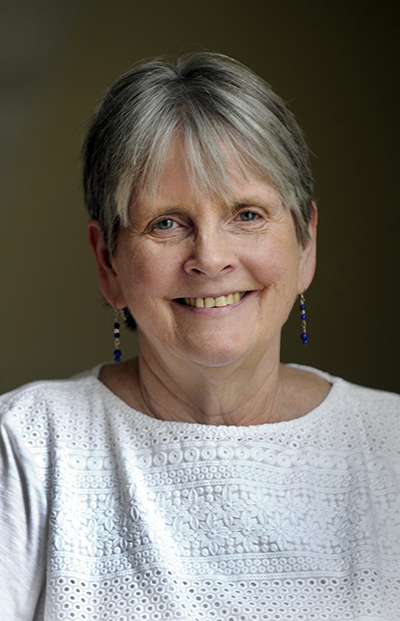
Toni Sullivan
FORUM ON FAITH
From many, one - in music and in faith.
by Toni Sullivan
Published: April 21, 2018
Danbury News Times
Ringing handbells can become a spiritual experience for both ringer and listener. A member of our congregation recently said this, "When I hear handbells playing beautiful melodies, it reminds me of what I expect to hear in heaven when the angels' harps take a break."
Bells have long been associated with worship. For centuries they have been used to summon worshippers of all traditions to services. In England, competitions developed for teams of ringers who performed on the towers of churches all across the countryside, who trained to ring complicated patterns on the bells.
Villagers were not excited about the hours of practice required to do well at these competitions. Handbells were developed to help tower bell ringers practice these sequences in a more private setting. People soon discovered how much the beautiful sound of these handbells could enhance worship services inside churches.
Ringing in a handbell choir is a unique spiritual experience. Alone, one bell is beautiful, but together with 60 other bells the sound is impressive, and some would say, magnificent.
There are typically 8 to 14 players. Each player is responsible for 2 bells and the sharps and flats associated with those notes. They read from a score that looks like a piano score, but with more notes than one person can play.
In most other musical ensembles, each person brings an instrument. In a handbell choir, all the handbells together are one instrument. With all the ringers part of that instrument, every ringer has a vital part to play.
Staying together requires tremendous team work, good listening and yes, sometimes courage. Each bell adds a unique sound. Each ringer in the bell choir shares his or her own skills and talents to make this instrument possible.
Isn't that true of our faith communities? Alone we can accomplish something, but together I believe we are much stronger. We all add our own individual and unique gifts to the whole, and the result is so much greater than our individual efforts.
I am reminded of a Christian scripture passage: in the First Letter to the Corinthians, the apostle Paul describes the harmonious functioning of the church as a healthy human body, which does not consist of one member but of many. Each member has a vital part to play.
Paul writes (1 Corinthians 12:15), "If the foot should say, 'Because I am not a hand, I do not belong to the body,' that would not make it any less a part of the body." That could just as easily apply to the harmonious functioning of a handbell choir. When one member of a bell choir is absent, the instrument is not whole and cannot function properly.
If Paul had been writing to a handbell choir, he might have said, "Indeed, the bell choir does not consist of one member but of many. If the low bell players were to say, 'Because I am not playing high bells, I do not belong to the body,' and just stay home, we miss out on all our bass notes."
I think what we learn in ringing bells together is something that is true of our lives, and it is something we learn in a healthy spiritual community. We can't live isolated from others and thrive. We need each other, whether it is when we support each other in times of trouble, or when we share the joys of life.
For me, music is the part of worship that truly opens me to God's presence. It opens me to the divine in ways the spoken word cannot.
Whether I am directing or ringing in a handbell choir, there are moments when it feels like the Holy Spirit is present in the connection we share as we feel the music together.
The bell choirs of the Congregational Church of Brookfield will offer a concert and dinner for the public at 5pm on Sunday, May 6, which will benefit the Women's Center of Danbury.
Toni Sullivan, Director of Music, Congregational Church of Brookfield, 160 Whisconier Road, Brookfield, CT 06804. toni@uccb.org. 203-775-1259.
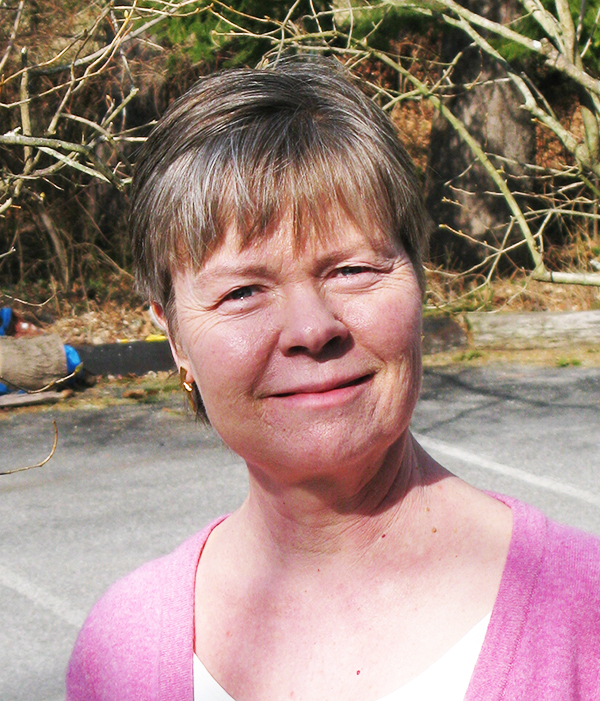
Rev. Lori Miller
FORUM ON FAITH
"Spring fever" and the meaning of Easter.
by Rev. Lori Miller
Published: April 7, 2018
Danbury News Times
The malady my mother defined as "spring fever" hit in late April - right around the time the trees in my Long Island hometown started turning green and the first seriously warm day appeared.
We still faced two more months of school, but even those of us who typically liked school started to itch for June.
Focus that should have been applied to multiplication and grammar and the position of the asteroid belt turned instead to those green trees outside the window and the appearance of flowers - pink and white and yellow - and birds in nests. The afternoon sun got warmer and hinted at endless afternoons of pools and bikes, disappearing into evenings filled with fireworks and fireflies.
Oh yes, the fever burned in April and made us long for summer.
I seemed to outgrow spring fever as I reached adulthood. The seasons still changed and certainly with parenthood came a similar anticipation of summer downtime but it didn't feel the same.
Maybe I spent too much time indoors in places without windows - hard to miss what you can't see. Maybe I just got too involved with work. Ministry is serious business, after all! Whatever "cured" it, the daydreaming and the wishing away of the hours seemed to pass.
Except. . . there are still moments on that first warm day of April when something in the air can transport me back to childhood. In that moment I am sitting in a stuffy classroom watching branches turn color and wishing to be somewhere else - waiting for the days when I could be somewhere else.
So whether or not I'd be diagnosed with spring fever, my longing for something beautiful in the future remains.
On April 1 this year, in the Western Christian tradition, we just celebrated Easter - the resurrection of Jesus Christ from the dead. Orthodox Christians celebrate Easter tomorrow.
The narrative is pretty simple: Christians believe that Jesus is the Son of God, the presence and love of God come to earth in the flesh. After a ministry of teaching and healing - much of it spent among the least, the last and the lost - Jesus inspired a violent reaction among the authorities and was crucified.
But my faith also believes that his death, far from being a meaningless execution, reconciles us to God. It becomes the bridge across human brokenness from our world to the reign of God.
And this death was not final. On the third day some women disciples went to Jesus' tomb to make sure he was embalmed properly for burial and found the tomb empty. They later said they experienced the risen Christ in their midst.
From this experience of resurrection comes the belief that physical death is not the end, that although the seasons come and go and we age and finally die, as do all organisms, there is a Life beyond this life.
From it comes the conviction that although this world itself so often smacks of death, of violence and want and selfishness, this is not the end condition either. We still hope and pray the reign of God will come.
The date of Easter fluctuates every year, but it always arrives in spring. As the natural world comes back to life in places like Connecticut after the long dormancy of winter, creation reflects resurrection.
Buds and new shoots of grass and fledgling birds hint of summertime, a season of trees in full leaf and producing fruit and grain. In a sense April is just a taste of what is to come - full and abundant life.
No wonder I long for it.
That desire for a better world is a longing, I believe, God places in every human heart. But unlike June which has to come on its own time, the world that God envisions - where everyone has enough and every child and elder is cared for and every youth is safe - is a world we can each work for.
And there are times, when the air is just right, that I catch a whiff of that reality.
When people work side by side to build a house for another family; when people march side by side for the cause of justice; when we see a person give up time to care for someone who is hurting - then that is when I believe we are seeing a more divine vision for this life.
The Rev. Lori Miller is Pastor, Newtown United Methodist Church, 92 Church Hill Road, Sandy Hook, CT 06482. She can be reached at Lori.miller@nyac-umc.com or 914-213-0308.
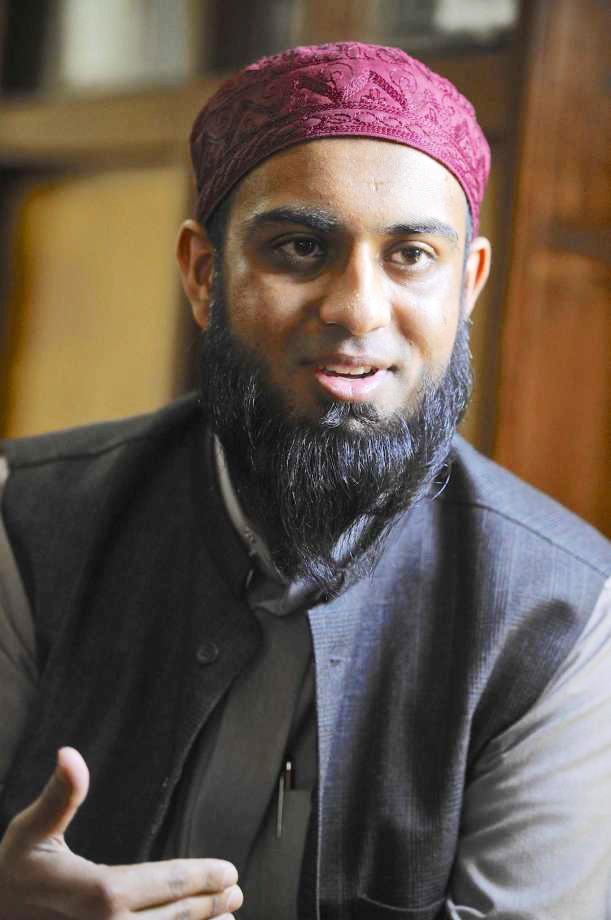
Usman Akhtar
FORUM ON FAITH
The source of our"spiritual maladies.
by Usman Akhtar
Published: March 17, 2018
Danbury News Times
Many times, after hearing about tragedies around the world, we find ourselves asking, "Why?" We may be overcome with feelings of fear and uncertainty when watching the news or scrolling through our social media feeds.
When we see God's earth full of chaos and calamities, it can leave us speechless. If we take a deeper look, we may find the origin of all these problems rooted deeply in human hearts - Islamic tradition refers to them as "spiritual maladies."
Greed, rage, rancor, ostentation, mindless pursuit of desires, exorbitant love of wealth - all these are examples of spiritual maladies that have wrenched humanity from our hearts. Islam teaches that if we want to better humanity, we must start at home, working within our own hearts.
Or as the 13th century Persian poet Rumi once said, "Yesterday I was clever, so I wanted to change the world. Today I am wise, so I am changing myself." Rumi's wisdom reflects the Islamic concept known as "Ihsan," roughly translated as the pursuit of excellence.
Muslims believe that once the angel Gabriel visited the Prophet Muhammad in the form of a man and asked him a series of questions. When asked about Ihsan, the Prophet answered, "It is that you worship God as if you see Him. And even though you may not see Him, you know well that He sees you."
Ihsan is pursuing perfection in the condition of our hearts. It is going the extra mile, getting past what is seen outwardly and working on our souls. It is inner discipline, good character, and gentleness. It is the inner struggle to be right with God and His creation.
Islam stresses the importance of the state of the spiritual heart. In the Quran, God describes the Day of Judgement as "A day in which neither wealth nor children shall be of any benefit, except one who comes to God with a sound heart."
The Prophet Muhammad once mentioned that a heart can become "rusted" as a result of heedlessness and being distant from God. Of course, the Prophet metaphorically meant the spiritual heart and not our physical hearts.
Islam uses many metaphors familiar to English-speakers that suggest and imply the spiritual heart. For example, we will say things like "wearing our hearts on our sleeves," or terms like "cold-hearted," "heart of stone," or "a person with no heart."
In another narration, the Prophet Muhammad mentioned that there is a piece of flesh in our bodies, and if this piece of flesh is pure and rectified, then the actions the body will carry out will also be pure. But if the piece of flesh is corrupt or polluted, then unfortunately our actions will be the same way.
The piece of flesh he was referring to was the heart. The corruption, greed, and enmity in the world is telling of the condition of our hearts.
In the Quran as well as in the Prophetic narrations, the heart is described with words like "alive," "dead," "enlightened" or "full of darkness." A spiritually sound heart is said to be "alive" and "enlightened."
The Prophet Muhammad once said, "The difference between someone who is cognizant and remembers God and the one who is oblivious of God is the like difference between the living and the dead." Essentially, he said that the heart of a believer who remembers God is enlightened and alive, while the heart of someone who doesn't know God is spiritually dead.
The question then becomes, how do we rectify the state of our hearts?
In Islamic tradition, there is a science known as "tazkiyah." Tazkiyah means "to purify," and refers to the purification of the heart. Scholars well-acquainted with this discipline have written volumes on spiritual maladies and their remedies. In my experience, the seeker of a sound heart will find these works spiritually enlightening and life changing.
I believe those remedies boil down to one thing: remembering the greatness and grandeur of God. To humble oneself as a mere creation of God, to be in awe of His Greatness and in service of Him, is a remedy to any spiritual malady.
Islam teaches that if we seek to better ourselves, and if we have the will to change, God will guide us. As the Quran says, "God does not change the condition of a nation unless it changes what is in its heart."
Usman Akhtar is the Imam at the Islamic Society of Western Connecticut, Danbury Masjid in Danbury. He can be reached at imam.danburymasjid@gmail.com.
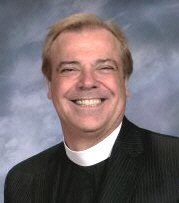
Rev. Joseph Krasinski
FORUM ON FAITH
Lent is a time for self-denial.
by Rev. Joseph Krasinski
Published: March 3, 2018
Danbury News Times
For Christians in the west, we are currently in the Church season of Lent, which is a time of preparation for Holy Week and Easter. Lent began on Ash Wednesday, February 14 this year, and it will end on Easter, April 1.
The way these dates are set is very complicated, based on lunar cycles and all sorts of other mathematical formulas that I will not bore you with. Suffice it to say, Lent begins 40 days before Easter - but to make it more complicated, you don't include the 6 Sundays of Lent in those 40 days.
In the Episcopal Church, we say that Lent is a time of prayer, fasting, and self-denial, as well as reading and meditating on God's Holy Word. For generations of Christians, it was a time to "give something up for Lent" as a way of "self-denial."
The "something" I hear most talked (joked?) about is giving up chocolate for Lent - which must have been a particular challenge this year as Ash Wednesday fell on Valentine's Day! Actually, many people I know have been very creative in how they will practice "self-denial," and have made interesting choices of what they would give up.
For instance, I had a teacher in High School who was a terrible smoker - he actually had an ash tray in the desk and smoked during class! (This was 50 years ago.) Every Lent he would give up smoking.
There is no doubt in my mind that his sacrifice was for him true self-denial, because he made us so miserable. I'm not sure that is what the Church had in mind as a "Christian practice."
In our current generation of Episcopalians, and possibly in other Christian denominations, the trend has been not to "give something up" for Lent, but to take something on. As the Book of Common Prayer suggests, that might mean taking on more and different types of prayer, spending time daily (even 10 minutes) reading and meditating on scripture, or being more intentional about attending worship every week.
Another way to observe a holy Lent might be to concentrate on and practice more fully what Jesus called the two "great commandments" - that is, to love God and to love your neighbor.
For many of us in Danbury, that might mean volunteering at Daily Bread at our church, at St. James Episcopal, or at the Dorothy Day Soup Kitchen, or at La Comida food pantry at the offices of the Association of Religious Communities (ARC). Or if you can't volunteer, you might be able to become more conscious of the needs of others as you go food shopping, and just purchase a few more cans of food to donate.
Another practice during Lent is to avoid temptation - as the Lord's Prayer says, "Lead us not into temptation.: I'm speaking here of a different type of temptation than breaking down and having a rich chocolate Dove bar.
In his book True Wilderness, Harry Williams reminds us that the true temptations of our time are not external but internal. To paraphrase, in Lent you might want to give up despair, cynicism, cruelty, or perhaps the temptation not to help others because we think, "What's the use?"
Or we might give up the temptation to banish love from our life, the thing we hold most dear. Or to banish from our lives during Lent the temptation to disbelieve in who we are - that is, beloved children of God.
These practices should not make us miserable, but instead are designed to be life-giving. They are intended to help increase our faith, so that even after Lent is over, our lives remain filled with the goodness and love of the Lord and our neighbor.
The Rev. Dr. Joseph A. Krasinski is the Rector of St. James' Episcopal Church, 25 West St., Danbury. He can be reached at joseph@saintjamesdanbury.org or 203-748-3561.
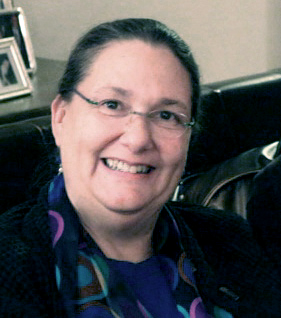
Polly Castor
FORUM ON FAITH
When spirituality and creativity are one.
by Polly Castor
Published: February 17, 2018
Danbury News Times
I am a Christian Science Practitioner who also happens to be an artist. It is common for artists to have day jobs, but most Christian Science Practitioners don't do anything else professionally. However, I have long seen the advantages of cross-pollination, and what I call a "both/and" approach to life.
I find art to be prayer itself, so I never feel torn between these two authentic facets of my being.
Christian Scientists understand God as the Creator of the universe, who made us in "His image and likeness," as the first chapter of Genesis declares. To me, that means that we are all designed, even mandated, to be creative as well. To deny that in ourselves is to dangerously overlook a fundamental feature of our nature.
So I nurture both creativity and spirituality as basic - even crucial - aspects of my origin. To practice and grow in these departments, for me, means I am on track with my essential self, and doing my job of noticing, amplifying and praising what God is working in me.
Spirituality and art both highlight a conception of reality that is not material or literal. Spirituality is often defined as that which is the opposite of materiality, and even the most realistic painting is not the thing that it is depicting. Both spirituality and art examine our assumptions of what reality actually is.
While I am invigorated by painting impressionistically out in God's gorgeous landscape, my spirit soars even more when creating conceptual, abstract art. Art and prayer are my two best ways to spiritually connect with my Source, and I utilize them often, both to feel centered myself and to help others feel that way, too.
Most artists paint nouns - people, places or things. But ideas are nouns too, and I find them to be the most interesting subjects for my art. How do you paint the idea of confidence, or propulsion, or even the month of July? These are examples of non-material things that I have enjoyed painting, listening to God each step of the way.
Christian Science "resolves things into thoughts, and exchanges the objects of sense for the ideas of Soul." This quote is by the founder of Christian Science, Mary Baker Eddy, in her book "Science and Health with Key to the Scriptures," and it describes the core of my job as a spiritual healer, as well as why I also pursue work as an artist.
We may feel barraged and bogged down by the "objects of sense," which are likely not even true from a spiritual perspective. My job as a spiritual healer is not to commiserate with the "objects of sense" in front of me.
Instead, what are the ideas of Soul? They are things like intelligence, strength, purity, love, harmony, vitality, innocence, justice, wellness, vibrancy, consciousness, ability and joy. I believe ideas of Soul are always beautiful and true; each one of us eternally includes them, and we can access them at any time because they come from God.
Clients call me for help because they need someone to see past the mess they find themselves in, and to hold a space for them to inhabit a better experience, which is aligned instead with those ideas of Soul (God). In my art as well, I try to focus on and portray what is really true, above and beyond what the material senses are so loudly insisting.
When I pray, I begin reasoning from my belief that God is all-powerful and all-loving, instead starting with a problem. It is then that solutions appear. Likewise, when I paint, I listen to God, being obedient each step of the way. This approach, in both disciplines, is based on a higher understanding of reality, and usually yields results that people find interesting and even wonderful.
In my work in either prayer or art, I encourage everyone to embrace their own deep authenticity. This is a place where ego has no voice, internal chatter and insecurity is silenced, and where I believe, good is not only possible but inevitable.
I am passionate about spirituality and creativity because I know they are healthy catalysts, which compound exponentially. In my experience, deep authenticity and alignment with the Creator instill not only individual happiness, compassion and well-being, but magnify outward, eventually resulting in peace on earth, as well as our collective sustainability and survival.
So, yes, I pray and paint. But what I am really trying to do is save the world, together with you.
Polly Castor is a Christian Science Practitioner and member of First Church of Christ, Scientist, in Ridgefield. She can be reached at PollyCastor@gmail.com

Judy Coco
FORUM ON FAITH
The resolution everyone should keep.
by Judy Coco
Published: February 3, 2018
Danbury News Times
Stay fit and healthy. Lose weight. Enjoy life to its fullest. Spend less, save more. Spend more time with family and friends. Sound familiar?
I suspect we've all done it. Every New Year, many of us make a "New Year's resolution," a commitment to change or improve something in our life. But, how long do we keep that commitment?
Recently I had a chuckle when I received a Facebook post on January 17th informing me that it was "Ditch New Year's Resolution Day!" I had never heard of this day before, but it made sense. By mid-January, many of us will have given up on our goals.
A study done by Fast Company found that "by the second week of the year, 31 percent of people have already abandoned their goals, and by the end of the month that number grows to just under 50 percent."
Perhaps this is because we make lofty goals with minimal flexibility for a setback. If we miss a day or our routine changes, we are unable to adjust to maintain our personal commitment. We give up.
Instead, if we want to have the greatest opportunity for success, I think we should keep our resolution(s) simple, aligned with values that are the most personally meaningful.
As I think of resolutions, I think of how nice it is when someone is kind to me. When I was very young I was taught the Golden Rule: "Do unto others as you would have them do unto you." I like it when others are kind to me, so I want to be kind to others.
The Golden Rule aligns with the teachings of various faiths:
"What is hateful to you, do not do to your neighbor. This is the whole Torah; all the rest is commentary." (Judaism)
"In everything, do to others as you would have them do to you; for this is the law and the prophets." (Christianity)
"This is the sum of duty: do not do to others what would cause pain if done to you." (Hinduism)
"Not one of you truly believes until you wish for others what you wish for yourself." (Islam)
"We affirm and promote respect for the interdependent web of all existence of which we are a part." (Unitarianism)
"Treat not others in ways that you yourself would find hurtful." (Buddhism)
"One should treat all creatures in the world as one would like to be treated." (Jainism)
"One word which sums up the basis of all good conduct . . . loving-kindness. Do not do to others what you do not want done to yourself." (Confucianism)
The Torah, the Jewish written law (in what Christians call the "Old Testament"), includes 613 commandments that address behavior in all aspects of life - including how we treat family, manage conflict, and take responsibility for others. A large part of Torah is respect for others.
I believe who we are is not defined by our attitudes towards big missions, such as social justice, matters of war and peace, or civil liberties and social welfare. It is in the small choices we make when no one is looking. I believe we demonstrate who we are when we give up our seat on a crowded train to an elderly person, help a mother manage a stroller down stairs, or return a misplaced shopping cart to the store.
In Judaism, the term tikkun olam means "repair of the world." If each day, we could do one small good deed, an act of kindness, together we could work towards repairing and strengthening our communities. That might be a resolution we could maintain throughout the year.
So my advice is to keep your resolutions simple, real and meaningful, so you can feel the difference that you have made. Every day, find one small "act of kindness" that you can do to make a difference in your community.
And be spontaneous. Sometimes unplanned acts of kindness are the most rewarding. Take advantage of any moment to share kindness.
There is strength in numbers. In a world filled with turmoil, wouldn't it be nice if we could each do our part to bring calm through simple acts of kindness? Soon we are all doing unto others as we would like others to do unto us. It adds up. Collectively we could make a real impact and actually repair the world.
Judy Coco is the Dean, Hebrew Education at Temple Beth Elohim, 41 Mt. Ebo Road North, Brewster, NY, 10509. Judy can be reached at 845-279-4585 x5.
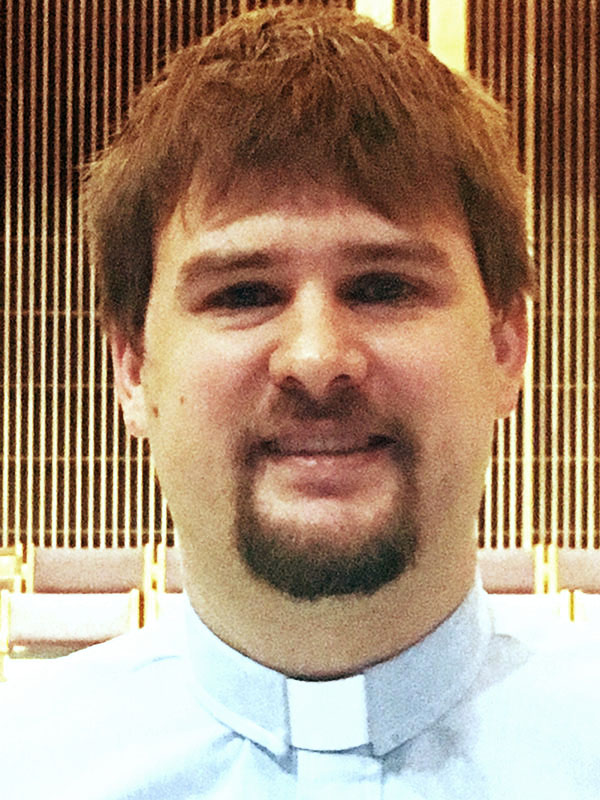
Vicar Dan Purtell
FORUM ON FAITH
The relevance of Luthor, 500 years Later.
by Vicar Dan Purtell
Published: January 20, 2018
Danbury News Times
Since my arrival at Prince of Peace Lutheran Church a year and a half ago, I have been blessed to get to know our Brookfield community, especially our ecumenical partners. Once a month, the Brookfield Ecumenical Clergy gathers over lunch to share food, fellowship, and ministry.
Throughout the year, our group of Lutherans, Episcopalians, Congregationalists, Presbyterians and Roman Catholics come together to share in spirit of cooperation through the Ecumenical Thanksgiving Eve Service (which been held annually in Brookfield since 1896), the Good Friday Cross Walk (which takes a version of "Stations of the Cross" out into the streets of town), as well as (for the first time this year) a service for Peace and Healing during Advent.
These gatherings and services are times that I truly treasure. They offer a constant reminder of the way the Christian church continues to be reformed and reforming, as it has been for the last 500 years - since October 31, 1517, the day Martin Luther posted his "95 theses" on the door of Wittenberg Castle Church.
So, what was exactly at stake in the Protestant Reformation? For Luther, the German Roman Catholic priest who gets credit for launching the Reformation with his historic call to academic debate, everything was at stake.
If we flashback a few years prior, we find Luther on his way to becoming a lawyer, following in his father's footsteps. Then, one day as he was caught in the midst of a terrible storm, he pledged himself to the Augustinian Friars.
The struggle for Luther as he became a monk was whether his own personal piety was enough to attain eternal salvation. He wondered if he could ever be a good enough Christian to reach heaven after death.
Luther's wrestling with the problem of being good enough to escape the fires of hell came to a head when Pope Leo X issued the Saint Peter Indulgence. The Catholic Church was selling "indulgences," a fee that people could pay the church to reduce their time in purgatory. Profits from the sale of indulgences were going towards the building of St. Peter's Basilica in Rome.
The church taught that purgatory was a place where souls would go to be "purged" of their sins before moving on to heaven. An indulgence also could be purchased retroactively for dead relatives, shortening the time that loved ones would need to suffer in purgatory.
Luther believed selling indulgences promoted "works righteousness," the notion that we must somehow earn our salvation through our good works. This did not sit well with him.
Luther wondered why human beings would be condemned to live in such a constant state of anxiety and fear, worried about whether or not they had been good enough to earn salvation. Over time, Luther came to the conclusion that, "salvation is received, not achieved," and that "salvation is not the goal of life, but life's foundation."
It was in the spirit of stimulating debate among his peers that Luther posted his 95 theses refuting the necessity of indulgences. His words were designed to inspire reform of the church's indulgence system, which especially oppressed the poor, exploiting their fears for the sake of profit.
Luther spoke to this injustice in his 1520 treatise, The Freedom of a Christian, where he asserted that a Christian is a free lord of all, subject to none - and that a Christian is a perfectly dutiful servant of all, subject to all. Luther believed that it was solely through God's grace, through the resurrection of Jesus Christ, that Christians are freed to serve each other.
Luther's written act of protest ultimately pitted Protestants and Catholics against each other, and it cost many lives in the process. However, as we mark the Reformation's 500th anniversary this year, we recognize that Christianity continues to reform and change.
Differences remain, yet efforts continue to bring us closer - such as The Declaration on the Way, which highlights 32 points of agreement between my denomination, the Evangelical Lutheran Church in America (ELCA), and the Roman Catholic Church.
While the conflict that led to schism may have been both necessary and unfortunate, my experience has been that Christians today continue to be formed and to reform. Through our ecumenical partnerships and caring relationships, I believe we are called together in unity, love, and service, through Christ.
I am grateful that Luther's bold stand 500 years ago has freed Christians now to continue our ongoing dialogue, to serve one another, to share in fellowship and ministry together.
Vicar Dan Purtell, Prince of Peace Lutheran Church, 119 Junction Rd., Brookfield, CT 06804. He can be reached at: danpurtell@sbcglobal.com or 203-775-9070
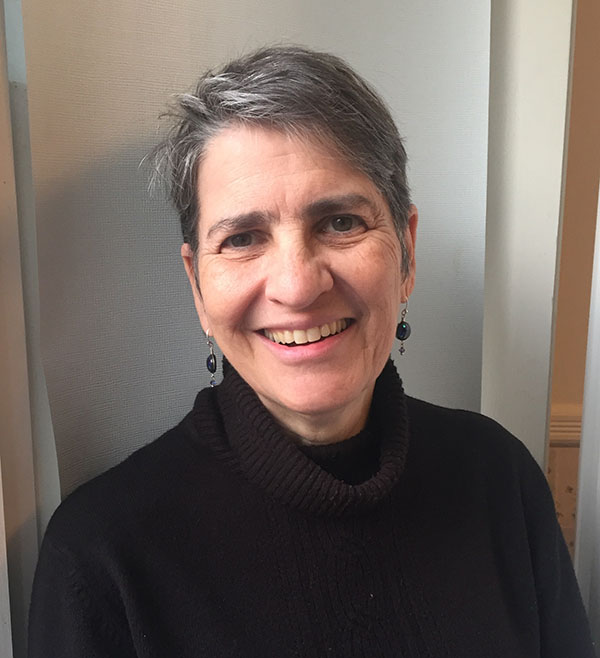
Chaplain Beryl Knudsen
FORUM ON FAITH
Preparing for Lent.
by Chaplain Beryl Knudsen
Published: January 6, 2018
Danbury News Times
We just celebrated Christmas, and already I am thinking ahead toward Pascha (Easter), because Pascha comes early this year, on April 8. In a few weeks the Orthodox Church will begin its preparation; we take a full month to get ready for our Lenten journey.
This should not come as a surprise; getting ready for a journey can take weeks or months. We pick a destination and plan our route. We ponder what we will take with us or leave behind. We think about who will accompany us.
Maybe we buy luggage. When I was young we always bought plenty of film for our camera. I just use my phone now.
Perhaps we are intentional about our trip. We choose a place with museums, because we love art. Or we like the outdoors, and we seek out beautiful vistas. Sometimes we travel to see relatives.
Lent also is a journey with a purpose. In the Orthodox Church, Lent lasts six weeks. It is followed by Holy Week and Pascha.
Lent is our journey to Christ's crucifixion - the voluntary suffering and death of Jesus on the cross - and beyond, to his victory over death. We believe that by accompanying Christ on His journey to the cross, we can fully enter into His resurrection.
During Lent, members of the Church fast from meat and dairy, increase their giving to others (financial and otherwise), and pray. This is not easy, but it is not supposed to be easy. It's an arduous journey with a powerful reward at its end.
Most of us nowadays tend to be busy. We can forget about God. If you don't think this is true, try deciding to think about God all day and watch what happens. The "noise" in this world can easily drown out any spiritual promptings we have, no matter how committed we are.
Lent offers an opportunity to shut the door on the chaos of the world, to pray more often and say no to our appetites. We set aside the things we are attached to. Lent is a gift to help us return to God.
My experience of Great Lent is that it truly is a journey. I get to see new things, and I am changed. I learn a lot about myself - some of which I would rather not see. In seeing my weakness, I am pushed to pray and to seek God in my life.
At the end of the journey is a light-filled experience at our Pascha service, held in the middle of the night. At the beginning, we stand in the darkened church, candles in hand, singing beautiful, joyous music.
We hear an ancient sermon, repeated every year throughout the world, in which all are invited to the feast, whether we have kept the fast or joined at the last minute. On that night, Christ's victory over death is all that matters to us, and we rejoice as a community.
But we have a distance to go before we get there. On Jan. 21 we will start the preparation for our journey. During this month we will hear specific passages from the Bible to prepare us - for example, the Parable of the Publican and the Pharisee (Luke 18:9-14,) a passage that warns us to let go of pride - an important reminder before we fast and give alms.
We also hear the Parable of the Prodigal Son who returns home (Luke 15:11-32). During our journey of Lent, it is as if we too are striving to return "home."
Finally, right before Lent (this year on Feb. 18) we have a special time in the service, during which parishioners turn to each other and ask forgiveness. Having done this, it is as if we have shed old baggage and are ready for our journey.
Toward the end of Lent, we hear the Parable of the Last Judgment (Matthew 25: 31-46), in which we are warned that we will be judged at the end of time according to how we have helped the poor, the prisoners, the sick, and the stranger.
Lent will be difficult, but we have plans and have been instructed; we are ready to pray, give alms and fast. We know these three actions will help transport us to our destination.
We know that our traveling companions are the fellow members of our Church. We believe that the holy ones who have gone before us on this road will be with us also. We know we are not alone, and we venture forth.
Pascha is coming!
Beryl Knudsen is chaplain at Saints Peter and Paul Orthodox Church, 93 Dodgingtown Road in Bethel. She can be reached at Beryl.knudsen@wchn.org.